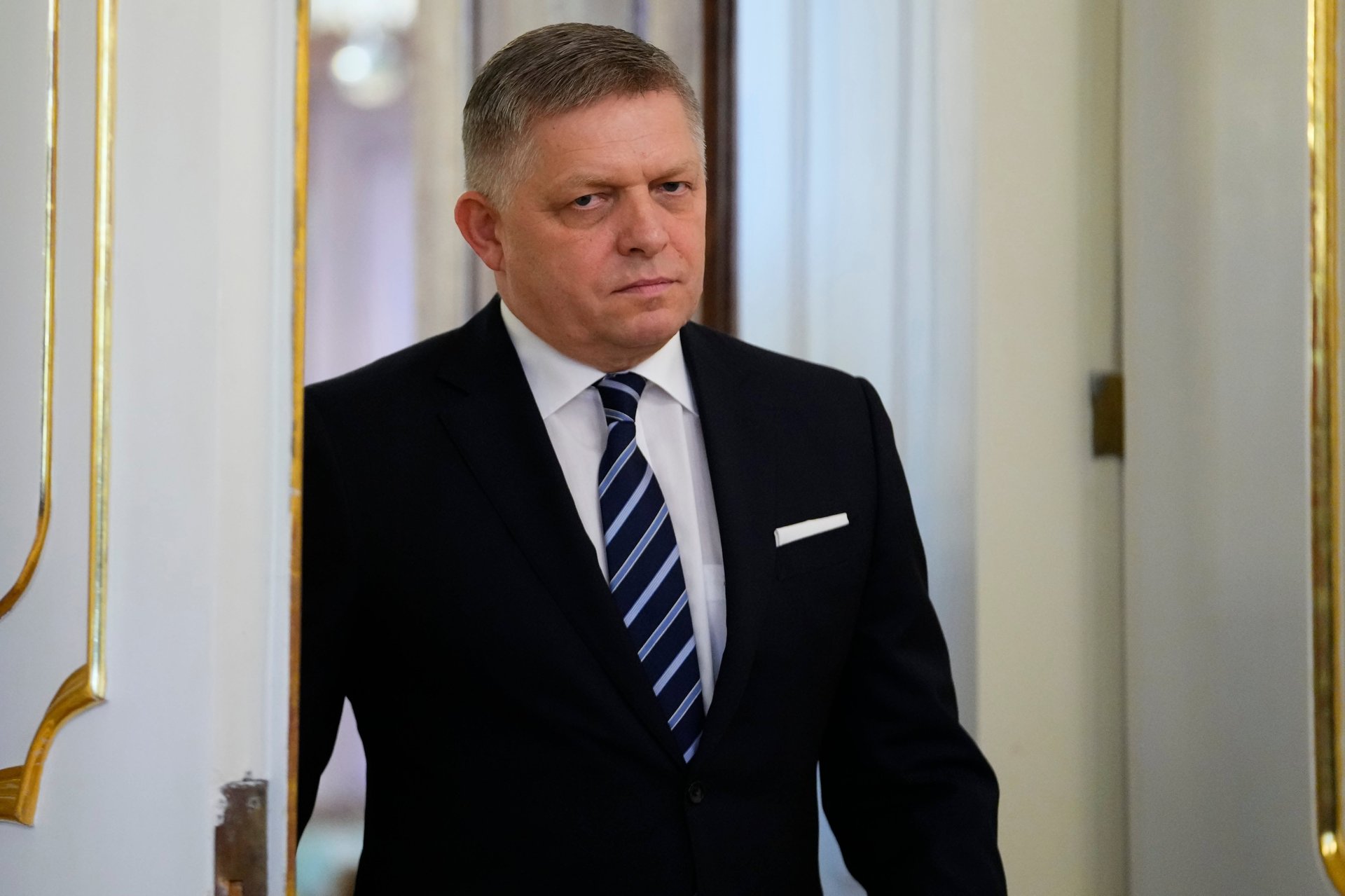Slovakia's new government closes prosecutor's office that deals with corruption and serious crimes
Slovakia’s new government of populist Prime Minister Robert Fico has approved an amendment to the country’s penal code to close the special prosecutor’s office that deals with the most serious crimes and corruption

BRATISLAVA, Slovakia (AP) — Slovakia’s new government of populist Prime Minister Robert Fico approved on Wednesday an amendment to the country’s penal code to close the special prosecutor’s office that deals with the most serious crimes and corruption.
Suggested Reading
President Zuzana Caputova, the opposition and nongovernmental organizations protested the move, saying it will harm the rule of law in the country.
Related Content
Caputova called the government's plans for the legal system "unfortunate and dangerous."
The draft expects the special prosecutor’s office to cease operations by Jan 15. The prosecutors should move to work under the office of the prosecutor general while regional offices take over unfinished cases.
The legislation needs parliamentary and presidential approval. The three-party coalition has a majority in Parliament. President Caputova could veto the changes or challenge them at the Constitutional Court, but the coalition can override her veto by a simple majority.
Fico returned to power for the fourth time after his scandal-tainted leftist Smer, or Direction, party won Slovakia’s Sept. 30 parliamentary election on a pro-Russian and anti-American platform.
In one of its first decisions, his government ended Slovakia’s military aid for neighboring Ukraine in a dramatic turnaround in the country’s foreign policy that could strain a fragile unity in the European Union and NATO. Fico also opposes EU sanctions on Russia and wants to block Ukraine from joining NATO.
Fico’s critics worry that his return could lead Slovakia to abandon its pro-Western course in other ways, following the example of Hungary under Prime Minister Viktor Orbán.
On corruption, some elite investigators and police officials who deal with such cases have been ordered to stay at home or dismissed, and the government plans to ease punishment for corruption, among other changes in the legal system.
Since the previous government took power in 2020 after campaigning on an anti-corruption ticket, dozens of senior officials, police officers, judges, prosecutors, politicians and businesspeople linked to Smer have been charged and convicted of corruption and other crimes. The cases of a number of others have not been completed yet.
Slovakia's Transparency International said that 95% defendants, including state officials whose cases have been sent by the special prosecution to courts, have been convicted and sentenced.